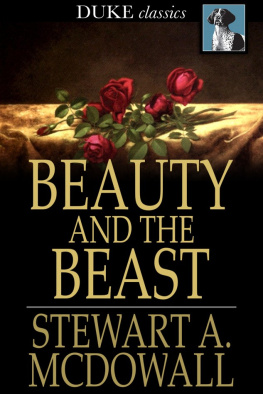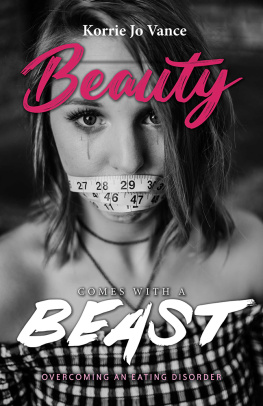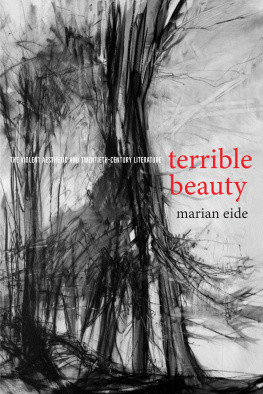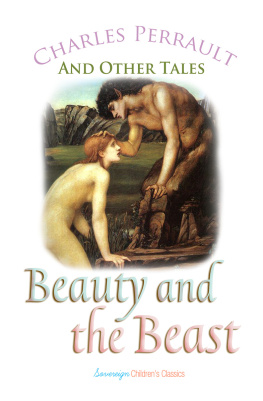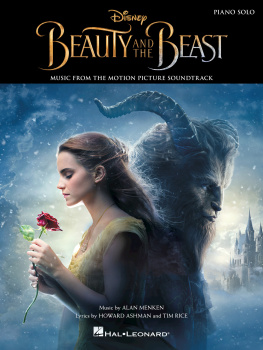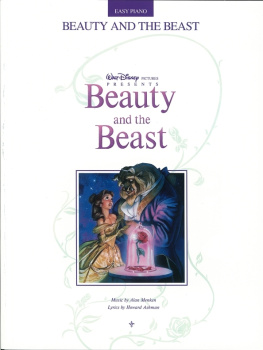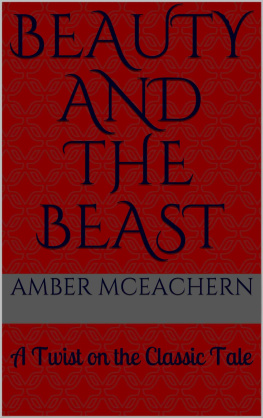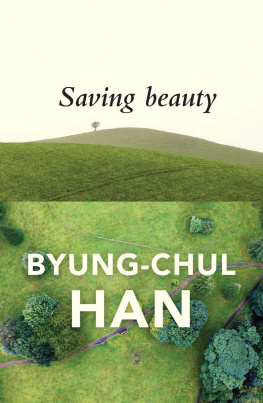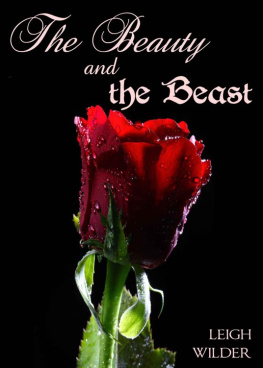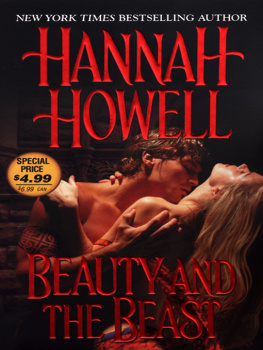BEAUTY AND THE BEAST
AN ESSAY IN EVOLUTIONARY AESTHETIC
* * *
STEWART A. MCDOWALL
*
Beauty and the Beast
An Essay in Evolutionary Aesthetic
First published in 1920
ISBN 978-1-62013-518-1
Duke Classics
2014 Duke Classics and its licensors. All rights reserved.
While every effort has been used to ensure the accuracy and reliability of the information contained in this edition, Duke Classics does not assume liability or responsibility for any errors or omissions in this book. Duke Classics does not accept responsibility for loss suffered as a result of reliance upon the accuracy or currency of information contained in this book.
Contents
*
Beauty and the Beast - An Essay in Evolutionary Aesthetic
*
For verily all men by nature were but vain who had no perception of God, and from the good things that are seen they gained not power to know him that is, neither by giving heed to the works did they recognise the artificer; but either fire, or wind, or swift air, or circling stars, or raging water, or luminaries of heaven, they thought to be gods that rule the world. And if it was through delight in their beauty that they took them to be gods, let them know how much better than these is their Sovereign Lord; for the first author of beauty created them: but if it was through astonishment at their power and influence, let them understand from them how much more powerful is he that formed them; for from the greatness of the beauty even of created things in like proportion does man form the image of their first maker. But yet for these men there is but small blame, for they too peradventure do but go astray while they are seeking God and desiring to find him. For living among his works they make diligent search, and they yield themselves up to sight, because the things that they look upon are beautiful. But again even they are not to be excused. For if they had power to know so much, that they should be able to explore the course of things, how is it that they did not sooner find the Sovereign Lord of these his works?
Wisdom xiii. 1-9.
Preface
*
I wish to take this opportunity of expressing my gratitude to Mrs R.B. Goodden and Mr R. M. Y. Gleadowe for the help they have given mein writing this book. With Mrs Goodden the theory was discussed pointby point, and her criticisms and suggestions are largely responsiblefor the final shaping of the argument, as well as for an importantdevelopment of the theory. To Mr Gleadowe I am indebted for some usefulhints, which led to a partial rearrangement of the material, by whichthe form of the book has been greatly improved.
S. A. MCD.
WINTON,
October 1919.
Introduction
*
Are we to look at the Beautiful with our feet firmly planted onthe Natural, or are we to look at the Natural from the apparentlyprecarious height of the Beautiful? This, after all, is the dilemmaof aesthetic, slow though men have been to realise it. As we read thehistory of Aesthetic Theory we are puzzled by the tentativeness and theuncertainty even of those philosophers who played the greatest part inmoulding human thought, until it dawns on us that, idealist though theymight be in all else, in this they were unconsciously disloyal to theirown systems, being in some measure materialist.
An attempt to form a philosophy of religion which should start fromthe generally accepted facts of biological science and pass, throughthe common experiences of personal relationship, to the ultimateproblems of Godhead and manhood, left at the close a keen sense ofsomething lackingsomething more than the lack of unity and balanceinevitable in work written and published step by step. I had tried tofind in Love, which is the very nature of Godhead, an essential impulsetowards creation. It was clear that this creation must be the creationof something new, if it were to be justified; and the conclusionwhich forced itself upon me was that the creation of personal beingsfulfilled this demand.
Yet an unsatisfied sense remained either that even the experience oflove reciprocated by fresh personal beings could not be new for Godwith that utter newness which belief in Him as Transcendent and Perfectrequired, or else that His experience was not always perfect. At anyrate something that would make this newness self-evident was missing.Something vital had clearly been left out. The one thing of which noaccount had been taken was Beauty; and I began to consider whether thismissing something, all-pervading yet intangible, was not Beauty itself.And in Beauty I seemed to find what I had missed.
To Aesthetic has generally been assigned the fate of Cinderella. Heruglier sisters, Epistemology and Metaphysic, have monopolised the courtinvitations, for the most part. Might she not, after all, be destinedto marry the Prince? A little thought made it clear that, properlyarrayed, she would bid fair to outshine the others. This book is not aneffort to dress her in a new fashion. Fairy godmother I cannot claim tobe, nor have I a magic wand. I shall only try to strip off some of therags, leaving her, like Psyche, to proclaim her own loveliness.
It is not my intention to give a systematic account of the developmentof aesthetic theory. Such books as Dr Bosanquet's History ofAesthetic, and the historical portion of Croce's Aesthetic, fromwhich works the following summary is chiefly derived, fortunatelymake the task unnecessary. Nor does any detailed criticism of thework of others fall within the scope of the present essay. My aim ismerely to suggest an idea, avoiding technicalities as far as I may,and then to link it up with the Christian idea of God on the one hand,and with the development of the human soul on the other. The verybriefest note on the course of speculation concerning Art and Beautywill suffice to introduce the point of view that I wish to suggest,which is that Beauty must be a first and not a last consideration formetaphysic. To advocate this is to turn his own weapon against Croce;but that is inevitable. Croce claims that Beauty is the expressionof that intuition of Reality which constitutes the first stage ofknowledge; but the philosophy of Croce is anti-metaphysical. Sincemany, while agreeing with the great and original discovery involved inhis affirmation, must disagree profoundly with his negation, it followsof necessity that sooner or later they will endeavour to hoist him withhis own petard.
Aesthetic theories show a steady and yet very remarkable change inthe views of philosophers concerning Art and even Beauty itself. TheGreeks tended, on the whole, to regard Art as mere imitation. Thus, atbest, the beauty produced by artistic creation was inferior, becausesecond-hand; in fact, as Plato argued, the artist's representationwas really third-hand, for there is first the idea, then the concreteindividual object, then the representation. Stress was laid onharmony, rhythm, order, as being indicative of the homogeneity ofan ideal world and therefore admirable. But, being an incompletereproduction of nature presumably because satisfied. We shall be led to disagreeprofoundly with this statement.
Of Vico (1725), to whom Croce acknowledges so great a debt, we willonly here say that he was the discoverer of the creative intuition,and this discovery entitles him to the honourable position of firstfounder of a coherent theory of aesthetic. Vico was primarily concernedwith the nature of poetry. He showed that poetry was a 'moment' of thespiritual consciousness, by which a man was brought into contact withrealitythat it represented a stage of knowledge

